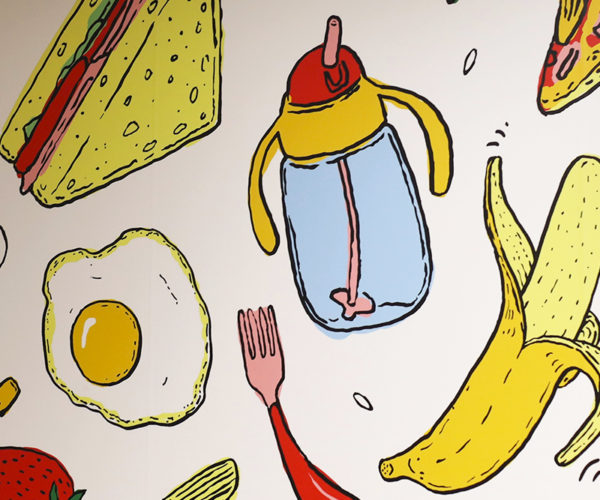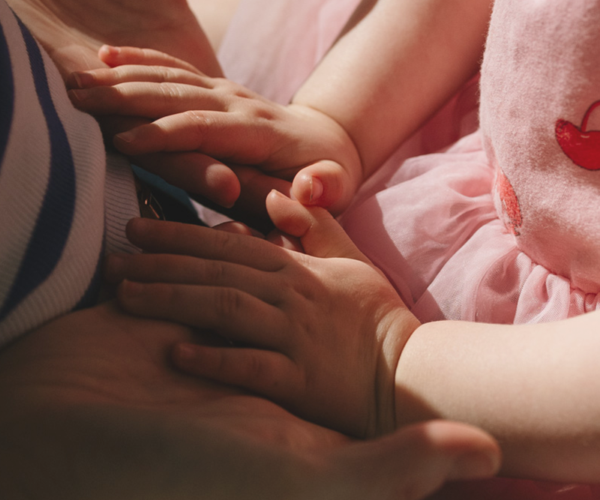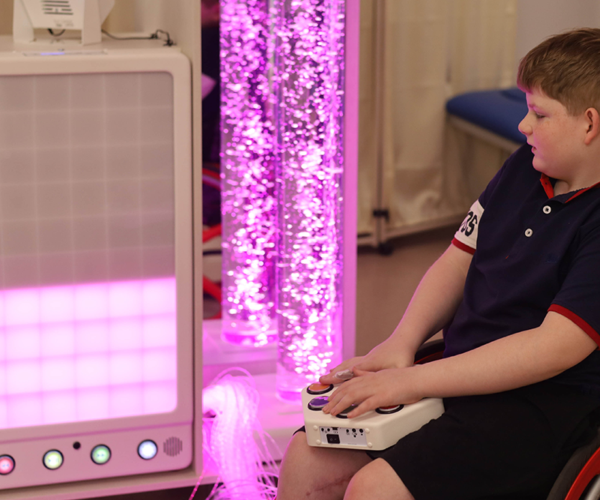In Australia, 1 in 4 children is estimated to be impacted by Chronic Pain, just like 15-year-old Lexie.
Lexie’s pain started in her legs when she was three and she was later diagnosed with Shin Splints. Lexie explained her daily experience of pain as “shooting pain down my shins” that could “last for a whole day and go up to a 10 out of 10”.
Like many others with chronic pain, Lexie expressed having felt sad, lonely and anxious about why she was in pain and worried about if it was something she had done.
Lexie underwent surgery for this, which eased her pain but only for a short time. Soon the pain returned. Lexie’s mum, Sara, says the family tried multiple medical specialists and treatments to battle Lexie’s ongoing pain, which only came back worse each time.
A referral to the Paediatric Chronic Pain Service (PCPS) at the Women’s and Children’s Health Network (WCHN) was the turning point for things starting to get better.
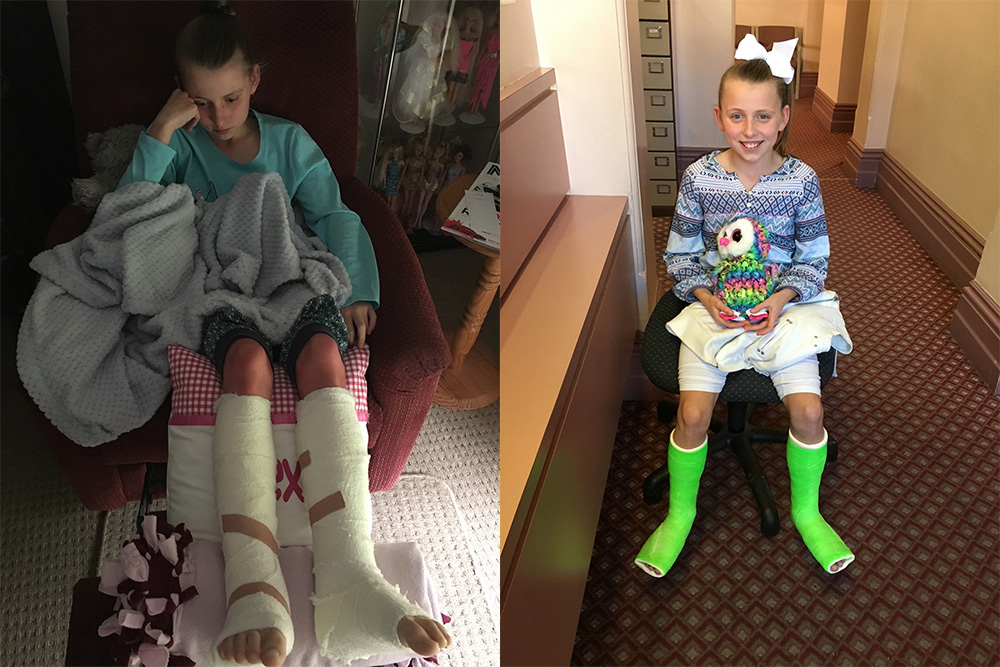
During treatment and after surgery.
Finding a Diagnosis
On visiting the PCPS, they explained that Chronic Pain is a diagnosis in its own right.
“Not many people understand chronic pain, especially when you can’t see anything physically wrong,” Sara says.
“A doctor once told Lexie the pain was ‘in her head’ and I remember being so angry.”
Sara went on to say, “When we got the phone call to advise that there was an upcoming place in the Comfort Ability Program (run by the PCPS), we were so relieved that we were finally getting help.”
Dr Nicki Ferencz, who is the Service Lead for the WCHN PCPS says, “For many families at the PCPS, it can be extremely helpful and validating to have a diagnosis of chronic pain.”
Comfort Ability Program
The Comfort Ability Program is a one-day workshop, run a few times each year to help young people and their parents manage chronic pain and build comfort skills. It focuses on strategies for improving function, sleep, school attendance and overall mental health and wellbeing.
“This program acts as a fast-tracked way of learning a variety of skills in one day that would otherwise take weeks, or months, of therapy,” Dr Ferencz explains.
These include cognitive behavioural skills, biofeedback, relaxation, mindfulness and breathing techniques.
“We know that when you feel like there is something that you can do to manage your pain, that puts you back in control rather than your body controlling you,” Dr Ferencz says.
Parents are also taught skills to help their young people cope.
“Supporting parents is really effective for helping young people because we want them to be modelling behaviour. Parents can be incredibly stressed from parenting a child in pain, so the more we can do to help them, the better that’s going to be for the child.”
Dr Ferencz says the most crucial element of the workshop is when Peer Mentors, who have previously completed the program, are invited to speak about their journey of managing chronic pain.
“It’s really good for the group to hear from someone who has come out the other side. Their voice is so much more powerful than anything we could say.”

Lexie is now thriving despite her chronic pain thanks to the Comfort Ability Program!
The Other Side
The Women’s and Children’s Hospital was the first hospital in Australia to run this internationally acclaimed, evidence-based program, and its success has been seen internationally with other Hospitals jumping on board.
Dr Ferencz says, “The research has shown this model is effective, and our experience certainly bears this out. We’ve had young people that have only needed one or two more follow-up sessions and then they’ve been able to be self-sufficient in managing their pain better.”
Of the previous Comfort Ability Program participants, 100% of parents and 85% of adolescents reported that the program was beneficial to them.
Lexie said, “Before the program, I struggled to go to school and found the classroom environment really tough to be in. Now, it’s still hard but I’m able to go and do my best. I still get anxious at times and worry about the pain but then I pull out my folder they (PCPS) helped me create and follow the steps to try and help myself.”
“I love being able to live a kind of normal life.”
Sara says, “The program opened my eyes to just how close I was to burnout as a carer and the need for me to get help.”
“With the tools and support, we can live our best life and know that we have done everything in our power to support Lexie to help her to be the best she can be.”
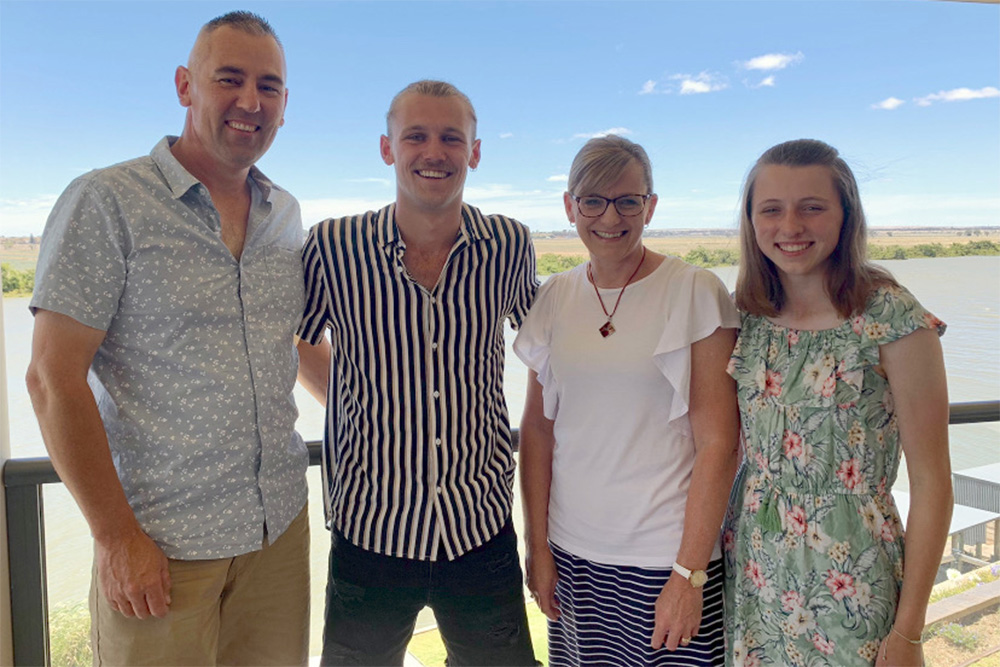
Lexie, Sara and their family living their best life.
Corporate Support
We are excited to have been successful in being awarded a CommBank Staff Foundation Community Grant in support of the Comfort Ability Program.
Thank you to the staff at CommBank who participate in Workplace Giving for supporting brilliant care for families like Lexie’s!


